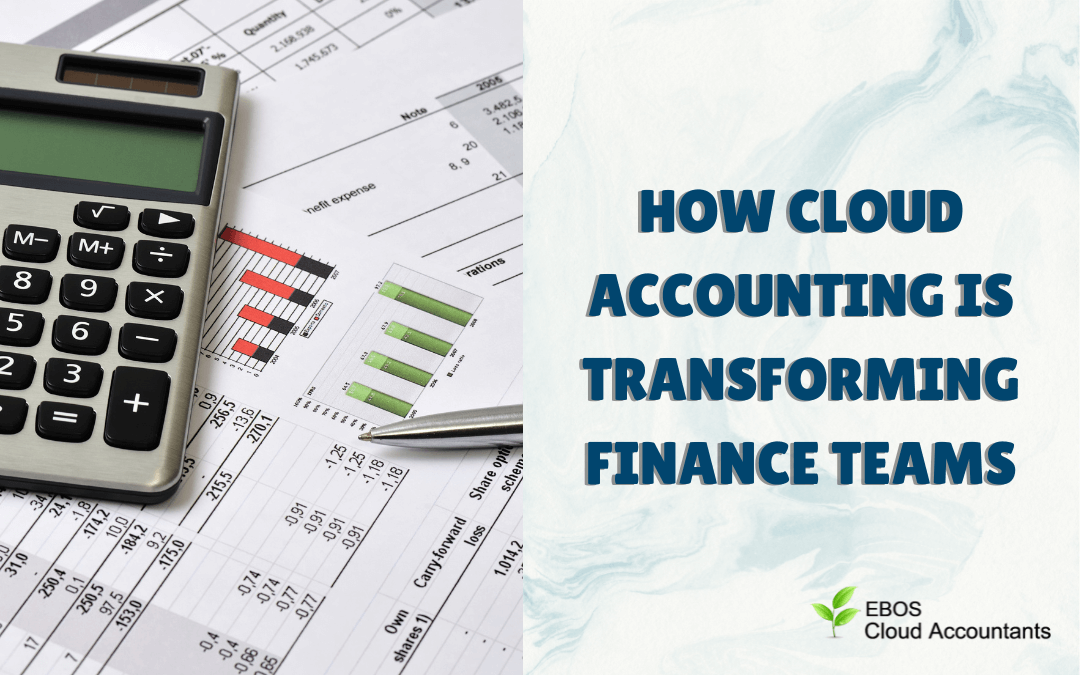The role of finance teams is no longer limited to crunching numbers and closing the books. In today’s fast-paced, data-driven business environment, they’re expected to provide strategic insights, guide decision-making, and drive growth. Enter cloud accounting—a technology shift that’s quietly revolutionizing how finance teams operate.
By moving from desktop software and spreadsheets to cloud-based platforms like Xero, QuickBooks Online, and NetSuite, finance teams are unlocking new levels of speed, accuracy, and collaboration. Let’s take a closer look at how cloud accounting is reshaping the future of finance.
1. Real-Time Access to Financial Data
With cloud accounting, finance teams no longer need to wait until month-end to understand the company’s financial position. Transactions are synced automatically from banks, credit cards, and other systems—giving teams real-time access to cash flow, expenses, and revenue data.
Why it matters:
Finance professionals can now deliver timely insights that support agile decision-making, especially during uncertain or fast-changing business conditions.
2. More Time for Strategy, Less Time on Admin
One of the biggest advantages of cloud accounting is automation. Tasks like bank reconciliation, invoice generation, expense categorization, and report creation can be largely automated.
Why it matters:
Finance teams spend less time on repetitive manual work and more time on what really matters—budgeting, forecasting, risk analysis, and business planning.
3. Seamless Collaboration Across Departments
Cloud platforms are designed for collaboration. With multi-user access and secure permissions, finance teams can work closely with operations, HR, sales, and external advisors—all in real time.
Why it matters:
Everyone works from the same data source, which reduces miscommunication, speeds up reporting, and encourages cross-functional teamwork.
4. Remote Work Ready
Cloud accounting is accessible from any device with an internet connection. This flexibility has been crucial in the rise of remote and hybrid work models.
Why it matters:
Finance teams can close books, run payroll, prepare reports, and support leadership—even if team members are working from different locations or time zones.
5. Improved Accuracy and Compliance
With automation and built-in checks, cloud accounting reduces human error. Most platforms also stay updated with the latest tax laws, financial standards, and compliance requirements.
Why it matters:
Finance teams can ensure accurate records, timely filings, and audit-ready books—without having to manually track every regulatory update.
6. Real-Time Reporting and Smarter Insights
Modern finance teams aren’t just record keepers—they’re analysts and advisors. Cloud platforms make it easier to create custom dashboards, financial reports, and forecasting models—all using live data.
Why it matters:
Instead of looking backward at what’s already happened, finance teams can now predict, advise, and plan for what’s next.
7. Easier Integration with Business Tools
Cloud accounting tools integrate seamlessly with payroll systems, CRMs, inventory platforms, point-of-sale systems, and more. This connected ecosystem streamlines data flow and eliminates silos.
Why it matters:
Finance teams gain a more holistic view of the business and can make more informed recommendations based on real-time operational data.
Final Thoughts
Cloud accounting isn’t just about moving financial data online—it’s about transforming the role of the finance team from back-office support to strategic powerhouse.
By reducing manual tasks, increasing transparency, and enabling smarter decision-making, cloud platforms are helping finance teams become faster, sharper, and more valuable to the business.
Check out our website at https://ebos-sg.com/ to explore more articles and discover how our Cloud Accountant Services can support you on your business.







